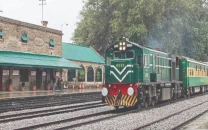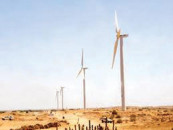Securing well-being of older people
Govts with big informal sectors should ensure labour rights, pension access

The rising population of older Asians has been undergoing multiple challenges such as meagre pensions, poor health, penury, economic and social ills, insufficient access to essential services and others as the developing Asia and the Pacific is unable to ensure the well-being of their ageing population.
Developing Asia is transitioning towards a much older demographic structure. The region’s share of older people in the whole population rose from 5.9% in 1960 to 8.2% in 2000 and 13.5% in 2022.
The population aged 60 and above is forecast to double from 567.7 million in 2022 to 1.2 billion in 2050, when it will account for 25.2% of the regional population. Furthermore, 55.6% of the world’s older population will live in the developing Asia by 2050. By 2050, 20 economies in the developing Asia will have 20% shares, 22 economies will have shares above 10%, and four economies – Afghanistan, Pakistan, Solomon Islands and Vanuatu – will still have shares lower than 10%.
The profile of older people in the region is undergoing a profound change as the older people today differ from those of the past. From 1980 to 2022, life expectancy at the age of 60 rose by 4.7 years for women and by 3.5 years for men as the older women consequently outnumber the older men. Economies in Southeast Asia and the Pacific will also see large increases in the oldest old by 2050.
However, the current generation of older adults is more educated than the same-age cohorts four decades ago.
A report “Aging Well in Asia: Asian Development Policy Report”, released recently by the Asian Development Bank (ADB), examines the progress made in Asia and the Pacific towards achieving the goal of ageing well and the challenges ahead.
It revolves around the challenges being faced by the older Asians as income alone falls short as a measure of well-being while governments in the region must create an environment conducive to furthering all four aspects of the well-being encompassing physical and mental health, productive work, economic security and social engagement. Good health drives productivity and economic security while promoting the older people’s active social engagement and reducing their need for long-term care.
Poverty undermines the well-being of the older people in several ways. Poverty may mean eating less food and food of lower nutritional quality. It suggests that the older people are unable to pay for healthcare as poverty and financial insecurity can trigger anxiety and depression. Abject poverty affecting the older people is on the decline in most Asian economies.
Abject penury has fallen among the older people, but relative poverty remains high in a couple of economies. It reveals two major regional challenges to the well-being in old age including pervasive work informality and gender inequality. Older women can expect to live longer than men, but they are more prone to diseases.
When it comes to the well-being, it encompasses the quality of life and its potential, which depend on factors beyond the traditional notion of poverty. Three challenges complicate the use of a detailed framework to measure the well-being of older people in developing economies.
The first challenge is whether the framework is able to capture the varying social and cultural values and heterogeneous institutional settings that often affect the well-being.
Second is whether such a framework can be directly applied to measure well-being in the subset of people at the specific life stage called old age. Third is the lack of detailed and standardised data across economies to derive detailed indicators.
The report anlyses four vital dimensions which shape the well-being of older people including physical and mental health, productivity through work, economic security, social engagement and meaningful interaction with family in certain ways.
The changing profile of older people creates both challenges and opportunities as living alone increases the risk of old-age poverty. On the other hand, improving educational attainment of the older Asians augments their productive capacity and opens up new economic opportunities.
Rising longevity has proved to be a double-edged sword as healthy longevity improves well-being in old age, while longevity in ill-health places a heavy strain on healthcare systems. Work plays an important role in supporting the well-being of older people as it generates income to cover current expenses and save for retirement. Work contributes directly to the well-being while also saving for the economy as a whole.
The experience in advanced economies shows that high savings derived from rising incomes and better pension coverage militate against a longer working life and make retirement more attractive.
However, many older workers in Asia and the Pacific work at menial jobs in the informal sector with little choice, but to work till they drop. Ultimately, how work benefits or harms older workers depends on three key factors: whether or not they work out of necessity, have physical capacity to work, and have opportunities for decent work.
Most men in their late 50s and early 60s continue to work. Labour force participation by men aged 55-64 ranges from 60% to 80% in nearly 34 economies.
An overwhelming majority of older workers work in the informal sector. In economies with available data, an average 94% of people aged 65 and above are informally employed, often in precarious circumstances. Work informality among older workers is particularly high in South Asia: 92% in Sri Lanka, 97% in India and 99% in Bangladesh.
Women who work informally are overrepresented in manufacturing, as family workers and as paid domestic helpers.
Women retire earlier than men in all economies, and retirement comes late for workers with the lowest educational attainment.
The share of older workers in agriculture increases with age. The share of people aged 60 and older is particularly high in Bangladesh, Cambodia, Indonesia, Pakistan, and Vietnam, where it exceeds 50%.
Across all economies, the share is the highest in the 75-79 age group, as their exodus from the labour force is more pronounced in other sectors. Farm employment tends to be informal, which means scant pension coverage and no statutory retirement age.
High informality leaves many older workers with neither a clear plan to retire nor financial preparedness for it.
Moreover, the report presents recommendations as Asia and the Pacific should be prepared to secure the well-being of its rapidly ageing population.
Policymakers in Asia and the Pacific must act urgently to improve the well-being in old age. Policies that promote productive ageing and employment should take into account the heterogeneity of older workers and emerging trends.
Basic labour protection against illness, accidents and disability, and access to pension and savings opportunities would allow these older workers to retire with dignity and improved well-being.
More targeted policies are needed to bridge inequity by improving the quality of jobs held by the older informal workers. Governments with large informal economies should ensure labour rights and basic pension access to the older informal workers and offer them smooth employment and labour-protection policies.
Automatic adjustment mechanisms (AAMs) can enhance the sustainability of pension systems. Technology innovations will greatly enable Asia’s pension systems.
Digitisation and fintech promise to alleviate the challenges of collecting contributions and delivering pensions in the informal sector. Technological advances in agriculture may enable older workers to prolong their careers.
Well-targeted social pensions can be both effective and sustainable. A priority is to establish effective social pension in Asia and the Pacific economies that do not already have them. Governments must redouble efforts to promote financial literacy through awareness campaigns in the region. Diverse circumstances of formal and informal older workers call for tailoured policies. Governments can do more to empower all Asians to plan and prepare for old age.
The writer is a staff correspondent
Published in The Express Tribune, May 6th, 2024.
Like Business on Facebook, follow @TribuneBiz on Twitter to stay informed and join in the conversation.


















COMMENTS
Comments are moderated and generally will be posted if they are on-topic and not abusive.
For more information, please see our Comments FAQ